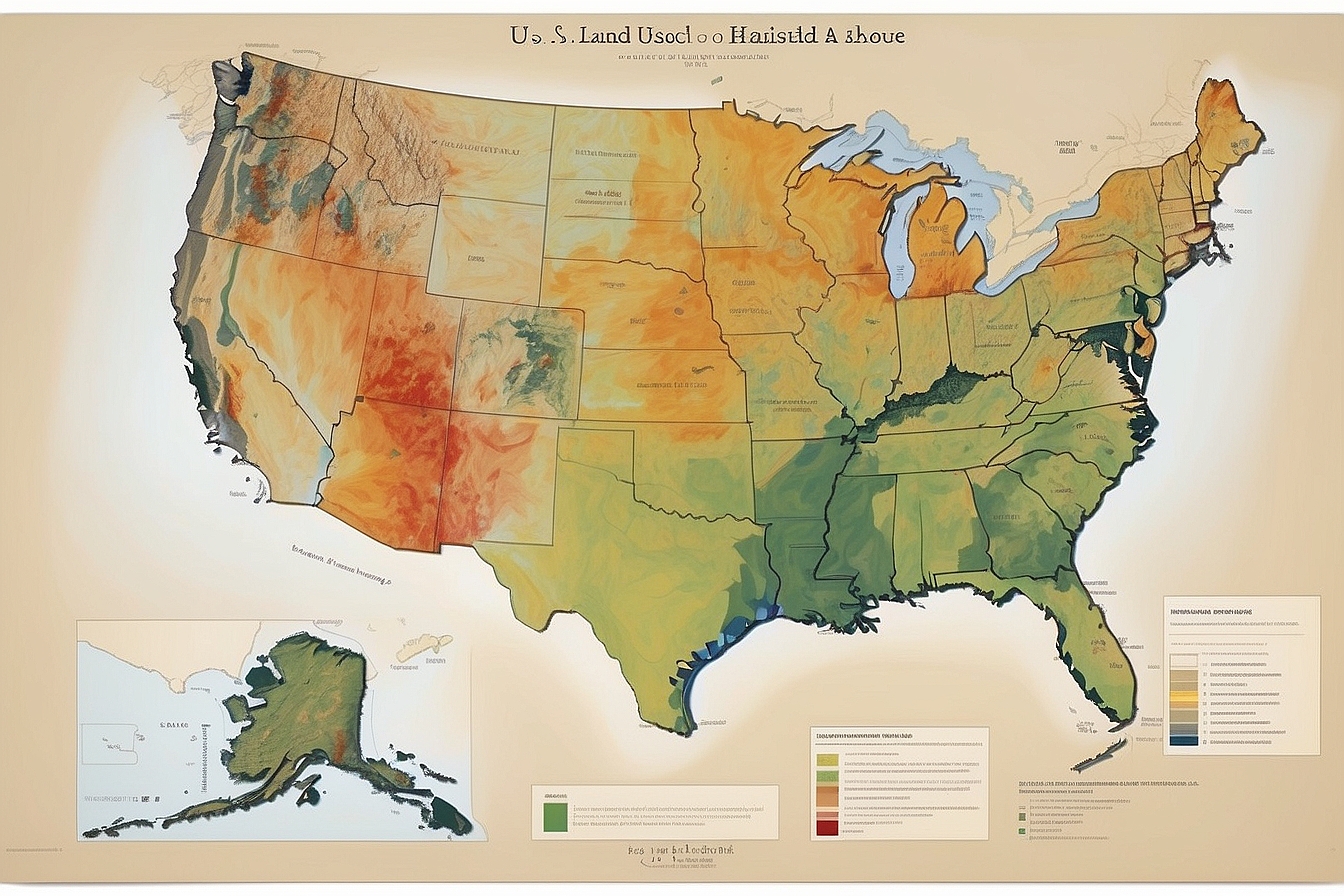Just like many of you, we’ve experienced the pangs of concern that go hand-in-hand with our sprawling cities and diminishing green spaces. It’s no secret that research consistently points to the same conclusion: urban environments lacking in verdant patches can contribute to rising stress levels among those who call them home.
Through our blog, we delve into how mindful stewardship of the land around us can work wonders for human health — offering purer air, wholesome foodstuffs, and a bulwark against maladies.
Join us as we explore why each plot of earth holds immeasurable value for our collective wellbeing!
Key Takeaways
- Land use decisions affect our environment and health through the air we breathe, the food we eat, and our exposure to natural hazards.
- Changes such as deforestation for agriculture can lead to ecosystem disruption, loss of biodiversity, and increased health risks from pollution and disease vectors.
- Forests provide essential resources like food, fibre, fuel, and medicinal plants that are critical for maintaining human health and preventing illness.
- Deforestation contributes to climate change by releasing carbon dioxide into the atmosphere with direct consequences on public health.
- Sustainable land management practices are key in balancing human needs with environmental conservation to ensure long-term wellbeing.
Land Use and Its Impact on Human Health
Land use refers to the way in which land is utilised, whether for agricultural, residential, or industrial purposes. Changes in land use can have direct and indirect impacts on human health through altered environmental conditions, such as air and water quality, and exposure to natural hazards.
Definition of land use
We define land use as the way we manage and modify natural environments to fit our needs. It encompasses everything from farming fields to building cities and parklands. The choices we make about how to use land have a direct impact on our health, community wellbeing, and the environment.
Making responsible decisions in land management can ensure that ecosystems continue to provide vital services like clean air, water, and food.
As stewards of the planet, it’s up to us to balance human activities with conservation efforts. This involves planning where agricultural areas should be located, ensuring urbanisation allows for green spaces, protecting habitats for biodiversity, and safeguarding soil quality through sustainable practices.
By doing so, we contribute not only to environmental health but also support public health by maintaining access to nature’s benefits.
Effects of land use changes
Land use changes have significant effects on the environment and human health. Alterations in land use, such as deforestation for agriculture or urban development, can disrupt ecosystems and lead to loss of biodiversity.
This can impact nutrient cycling, potentially affecting community health and human wellbeing. The shift from natural landscapes to built environments also contributes to air and water pollution, impacting the overall health of individuals living in these areas.
Agricultural expansion further exacerbates soil degradation and erosion. This may result in reduced food production capacity and affect access to nutritious foods, thereby contributing to illness within communities.
Land development and its impact on the environment and human health
As we consider the effects of land use changes, it’s crucial to recognise the significant impact that land development has on both the environment and human health. Rapid urbanisation and industrial expansion often result in deforestation, habitat destruction, and soil degradation.
These alterations disrupt ecosystems, leading to a loss of biodiversity and vital ecosystem services needed for human well-being. Moreover, land development can contribute to air pollution, water contamination, and an increase in disease vectors such as mosquitoes.
It is essential for us to understand the intricate connection between land development and its repercussions on our environment and health.
The substantial environmental changes caused by rampant land development have far-reaching implications for human health – from respiratory illnesses due to increased air pollution to waterborne diseases caused by contaminated water sources.
The Vital Role of Forests in Human Health
Forests play a crucial role in human health by providing natural resources such as food, fiber, and fuel. However, deforestation and agricultural activities can have detrimental effects on human health, making the preservation of forests essential for our well-being.
Providing natural resources such as food, fiber, and fuel
Land plays a crucial role in providing essential resources like food, fiber, and fuel that are vital for human survival. Forests, in particular, serve as valuable sources of these natural resources.
They not only provide sustenance through the fruits and nuts they bear but also offer raw materials for textiles and renewable energy sources. Furthermore, forests contribute to the purification of the air we breathe by absorbing carbon dioxide.
As humans continue to rely on land for sustenance and resources such as timber or agricultural products, it’s imperative to ensure sustainable practices to maintain a healthy balance between meeting our needs and preserving the environment.
The impact of deforestation and agricultural activities on human health
Deforestation and agricultural activities have a significant impact on human health. Clearing forests for agriculture can lead to the loss of biodiversity, disruption of ecosystems, and reduced availability of important natural resources such as clean air and water.
Additionally, deforestation contributes to climate change by releasing carbon dioxide into the atmosphere, which has far-reaching consequences for human health. The loss of trees also reduces access to medicinal plants that are vital for healthcare in many communities.
Furthermore, agricultural practices often involve the heavy use of chemicals and pesticides, which can contaminate water sources and soil. This contamination poses serious health risks to individuals living in these areas, including an increased incidence of respiratory diseases, skin conditions, and other related health issues.
Forests as sources of nutritious foods and prevention of illness
Forests provide a rich variety of nutritious foods, including fruits, nuts, seeds, and wild game. These natural resources play a crucial role in supporting human health by offering diverse and nutrient-packed options to maintain well-being.
Additionally, forests offer medicinal plants that have been used for centuries in traditional medicine to prevent and cure illnesses. The preservation of forests is essential for safeguarding these valuable sources of nutritious foods and medicines.
Furthermore, the presence of trees helps prevent illness by purifying the air we breathe. Trees absorb pollutants from the atmosphere, reducing the risk of respiratory diseases and improving overall air quality.
Conclusion
In conclusion, the way we use land directly affects our health. Changes in land use impact the environment and human well-being. Protecting forests is crucial for providing essential resources and maintaining human health.
It’s imperative that we recognise the significance of land in promoting a healthy society.
FAQs
1. Why is land important for human health?
Land provides space for growing food and green areas where people can relax and exercise, both of which are crucial for good health.
2. Can the quality of land affect our well-being?
Definitely! Clean, fertile land ensures we have access to nutritious foods, while contaminated or poor-quality land can harm our health by limiting food production and exposing us to pollutants.
3. How does access to green spaces benefit us?
Having access to parks and natural settings offers a place for physical activity, relaxation, and connection with nature, all essential for maintaining mental and physical wellness.
4. What role does sustainable land management play in health?
Sustainable management preserves the quality of the land ensuring it remains productive and supports healthy ecosystems which is vital for clean air, water resources and biodiversity that contribute to human health.





